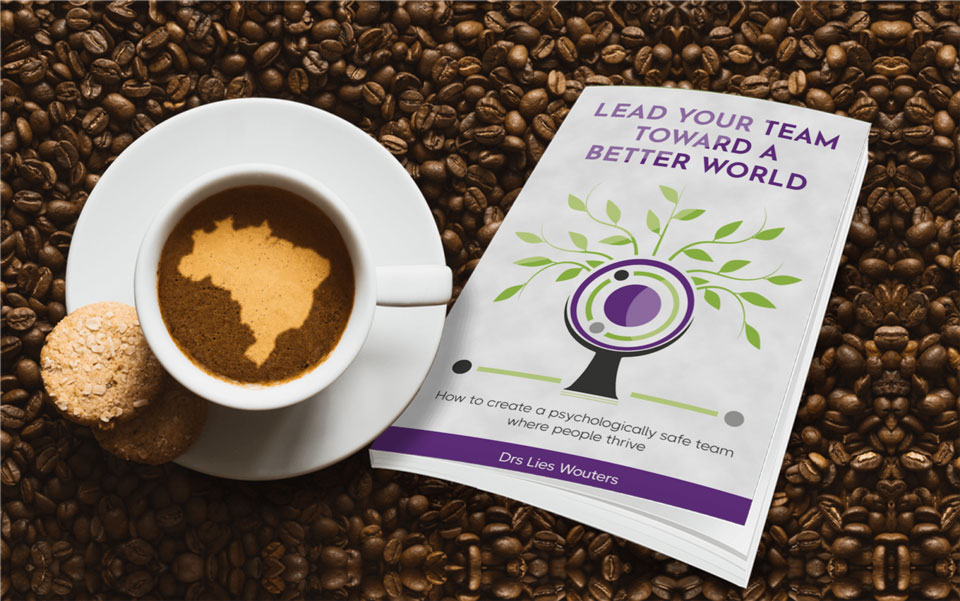Building Psychological Safety for CEOs and Companies

A lot has been said about psychological safety for companies. Google discovered in a two-year study that it was the most important element their high performing teams had in common (Rozovsky, 2015). Many scientists and practitioners have studied the concept and ways to build this in teams for the last few years. Despite this large focus on the topic, a survey done by McKinsey & Company in 2021 showed that only a handful of business leaders demonstrate the positive behaviors that instill a safe climate.
Is it hard for leaders to create this climate, or have we just not been trying hard enough? To answer this question I sat down with international organizational psychologist, advisor to Fortune 500 companies, bestselling author of Lead your team toward a better world and founder of OMG! (www.omgadvies.nl/en/), Drs Lies Wouters, to get her insights on the current status of psychological safety and the first step companies can take to build this.
Lies has worked with CEOs & HR Professionals from across the globe and hasn’t come across any business leader who didn’t understand the importance of creating a safe climate for their people to work in. However, many of them found were surprised to learn that the first step to creating psychological safety starts by creating a safe space for themselves.
“When we ask leaders whether they ever feel unsafe, many of them answer that they haven’t. When we ask them whether they ever feel frustrated, annoyed, angry or stressed, we get a different answer. The most important thing to understand about psychological safety is that most people don’t experience it as feeling safe or unsafe. What actually happens when you find yourself in an unsafe situation or environment is that your brain detects a threat to one or more of your basic psychological needs,” says Wouters.
In their research work published in 2002, Ryan and Deci found that each person has three basic psychological needs: competence, autonomy and connection. When the amygdala (a small almond-shaped part in your brain) detects a threat to one of these needs, it sends a signal to the rest of your brain and subsequently your body. It triggers an emotional response like anger or frustration. Simply called a stress response.
Research shows that when you experience a stress response, you become less capable of opening up to others and build high quality relationships (Wouters et al., 2022 in progress). And those high quality relations are exactly what you need to build safety for others. Leaders have often come as far as they have because they are capable of high performance under stressful circumstances. They have learned to push through when they experience stress. That is exactly why it is difficult for them to show the positive behaviors that instill a safe climate.
Drs Lies Wouters says, “the first step to build a safe environment in any organization is therefore to develop the leaders in learning how to not always push through, but take a moment and support themselves when they experience a difficult situation.”
When a leader is able to take a step back in such a situation to:
- take the time to notice how they feel,
- remind themselves that this is part of being human (you are not alone!) and
- offer themselves the friendly words they need to hear
they can send a signal back to their brain that they are safe. Only then will their brain open up to connect to others and build those high quality relationships.
In real life, with real people, it is inevitable that people experience threats against their basic psychological needs. Psychological safety is therefore not an end state but a dynamic construct that you need to build on continuously. That makes it essential to train leaders on the importance and building of psychological safety in their teams and companies.
Written by Parul Agrawal.
Have you read?
Best Business Schools In The World For 2022.
Best Fashion Schools In The World For 2022.
Best Hospitality And Hotel Management Schools In The World For 2022.
Best Medical Schools In The World For 2022.
The World’s Best Universities For Doctor of Business Administration (DBA), 2022.
Bring the best of the CEOWORLD magazine's global journalism to audiences in the United States and around the world. - Add CEOWORLD magazine to your Google News feed.
Follow CEOWORLD magazine headlines on: Google News, LinkedIn, Twitter, and Facebook.
Copyright 2025 The CEOWORLD magazine. All rights reserved. This material (and any extract from it) must not be copied, redistributed or placed on any website, without CEOWORLD magazine' prior written consent. For media queries, please contact: info@ceoworld.biz








